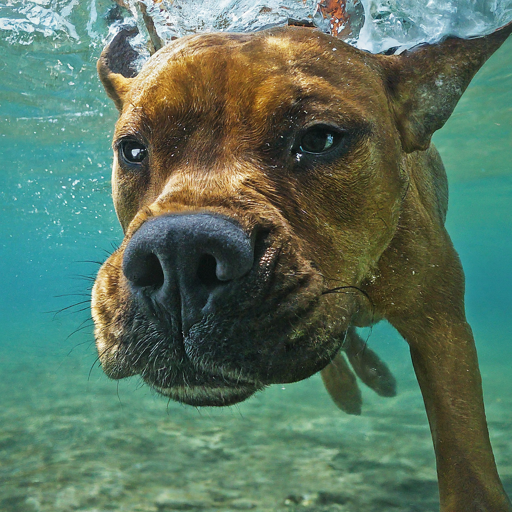Have you ever watched your dog curiously sniffing around a seemingly empty spot, leaving you wondering what hidden treasure they might have discovered?
Well, buckle up, dog lovers, because their incredible sense of smell extends far beyond the realm of forgotten kibble under the couch.
Prepare to be amazed as we explore the wet and wild world of canine olfaction – can dogs really smell underwater? Dive in with us as we sniff out the science behind this fascinating superpower!
Can Dogs Smell Underwater?

Imagine this: your playful pup takes a joyful plunge into the lake, but instead of chasing after a ball, they start circling a specific spot.
Could they be smelling something…underwater? Believe it or not, the answer is yes! Dogs possess an incredible sense of smell that goes beyond sniffing out treats – they can even detect scents beneath the water’s surface.
Superpower Sniffer: Unpacking a Dog’s Keen Sense of Smell
Dogs are renowned for their impressive olfactory abilities. Compared to humans with a measly 6 million olfactory receptors, a dog boasts a staggering 220 million!
This translates to a world of scents humans can’t even imagine. But how does this translate to underwater detection?
Sniffing Secrets: Unveiling the Science Behind Underwater Smells
Here’s the secret weapon in a dog’s olfactory arsenal:
- The Vomeronasal Organ (Jacobson’s Organ): This specialized organ located behind the roof of a dog’s mouth plays a key role. It can trap and analyze scent particles dissolved in water, allowing them to “taste” the water in a way.
- Surface Scents: While dogs can’t directly smell underwater, they excel at detecting odors emanating from the water’s surface. These scent molecules rise to the top, and a dog’s super sniffer can pick up on even faint traces.
Underwater Heroes: How Dogs Utilize Their Aquatic Olfaction
So, how do these underwater sniffing skills translate to real-world applications? Here are a few examples:
- Search and Rescue: Trained dogs can locate missing people or objects submerged underwater, aiding rescue efforts.
- Detection Dogs: Specially trained dogs can sniff out pollutants or illegal substances present in water sources.
Beyond the Hype: Limitations of Underwater Dog Detection
While impressive, it’s important to understand the limitations:
- Depth and Current: Strong currents and deeper depths can significantly reduce a dog’s ability to detect underwater scents.
- Training and Specificity: Dogs require extensive training to identify specific scents underwater effectively.
The Final Splash: Canine Companions – Masters of Multi-Sensory Detection
A dog’s ability to smell underwater is just one facet of their incredible sensory capabilities. Combined with their sharp vision and hearing, dogs become invaluable partners in various fields.
Also Read: Anatolian Shepherd Lab Mix: Canine Companion Guide
Also Read : Can Dogs Smell Through Mylar Bags? Unmasking the Myth
